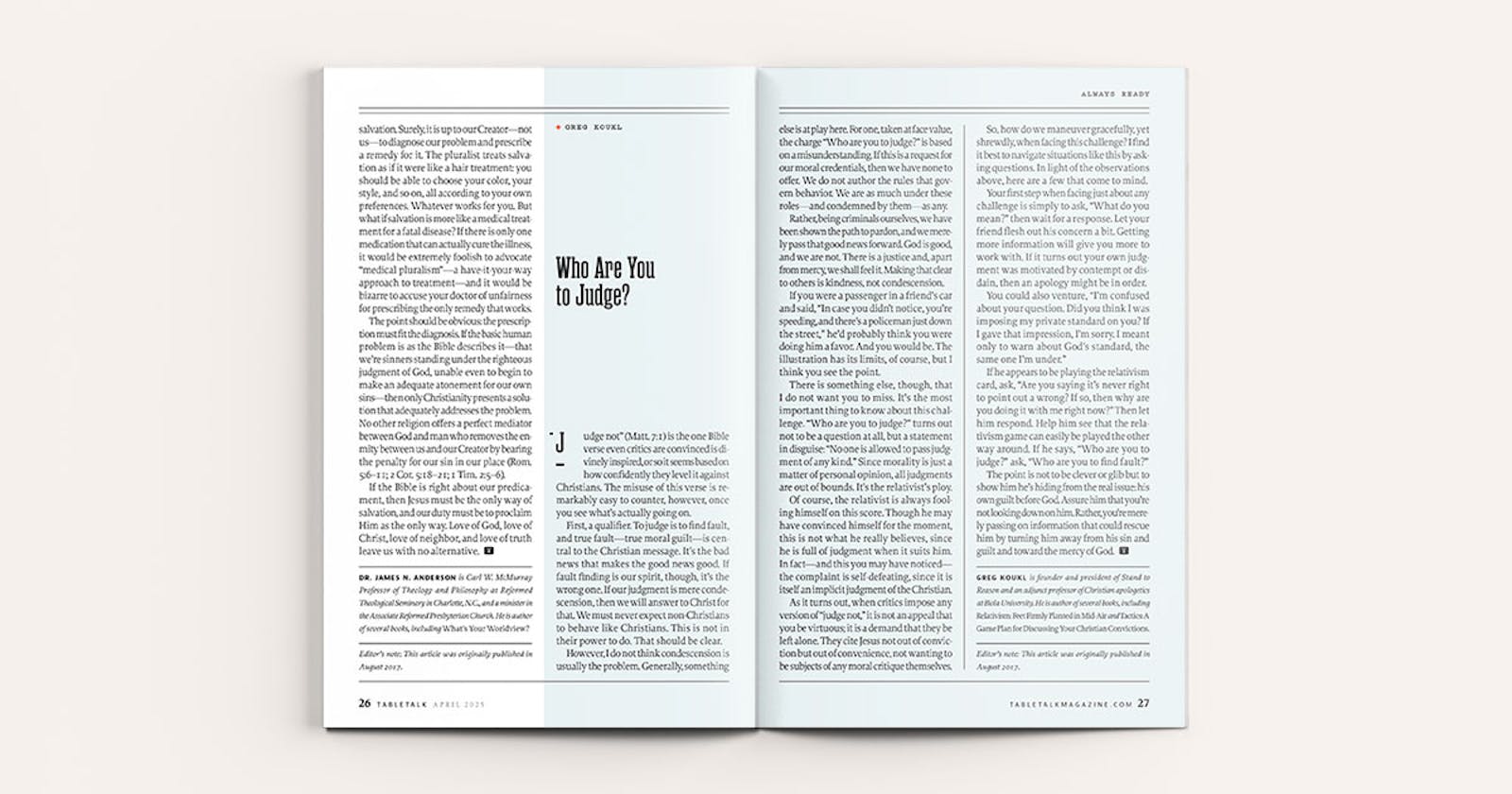Who Are You to Judge?
by Greg Koukl
“Judge not” (Matt. 7:1) is the one Bible verse even critics are convinced is divinely inspired, or so it seems based on how confidently they level it against Christians. The misuse of this verse is remarkably easy to counter, however, once you see what’s actually going on.
First, a qualifier. To judge is to find fault, and true fault—true moral guilt—is central to the Christian message. It’s the bad news that makes the good news good. If fault finding is our spirit, though, it’s the wrong one. If our judgment is mere condescension, then we will answer to Christ for that. We must never expect non-Christians to behave like Christians. This is not in their power to do. That should be clear.
However, I do not think condescension is usually the problem. Generally, something else is at play here. For one, taken at face value, the charge “Who are you to judge?” is based on a misunderstanding. If this is a request for our moral credentials, then we have none to offer. We do not author the rules that govern behavior. We are as much under these roles—and condemned by them—as any.
As it turns out, when critics impose any version of “judge not,” it is not an appeal that you be virtuous; it is a demand that they be left alone.
Your first step when facing just about any challenge is simply to ask, “What do you mean?” then wait for a response. Let your friend flesh out his concern a bit. Getting more information will give you more to work with. If it turns out your own judgment was motivated by contempt or disdain, then an apology might be in order.
You could also venture, “I’m confused about your question. Did you think I was imposing my private standard on you? If I gave that impression, I’m sorry. I meant only to warn about God’s standard, the same one I’m under.”
If he appears to be playing the relativism card, ask, “Are you saying it’s never right to point out a wrong? If so, then why are you doing it with me right now?” Then let him respond. Help him see that the relativism game can easily be played the other way around. If he says, “Who are you to judge?” ask, “Who are you to find fault?”
The point is not to be clever or glib but to show him he’s hiding from the real issue: his own guilt before God. Assure him that you’re not looking down on him. Rather, you’re merely passing on information that could rescue him by turning him away from his sin and guilt and toward the mercy of God.
Editor’s note: This article was originally published in August 2017.
Gregory Koukl is founder and president of Stand to Reason: Clear-Thinking Christianity. He is author of several books, including Relativism: Feet Firmly Planted in Mid-Air, Tactics: A Game Plan for Discussing Your Christian Convictions, and The Story of Reality.



Recent Comments